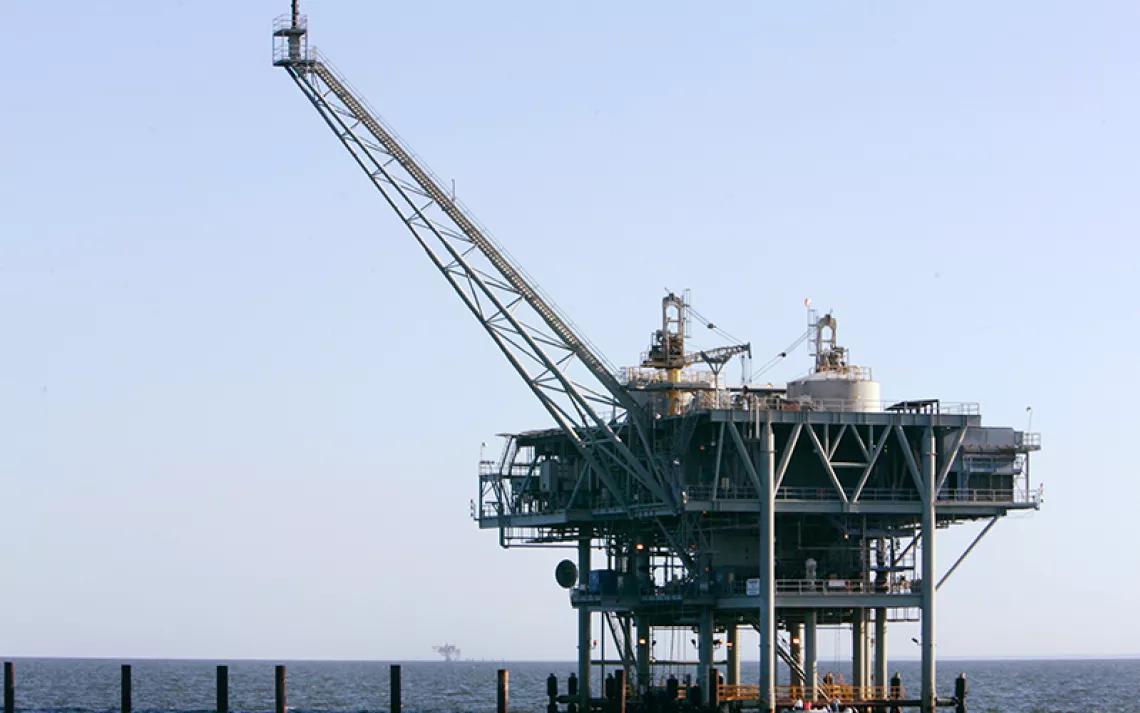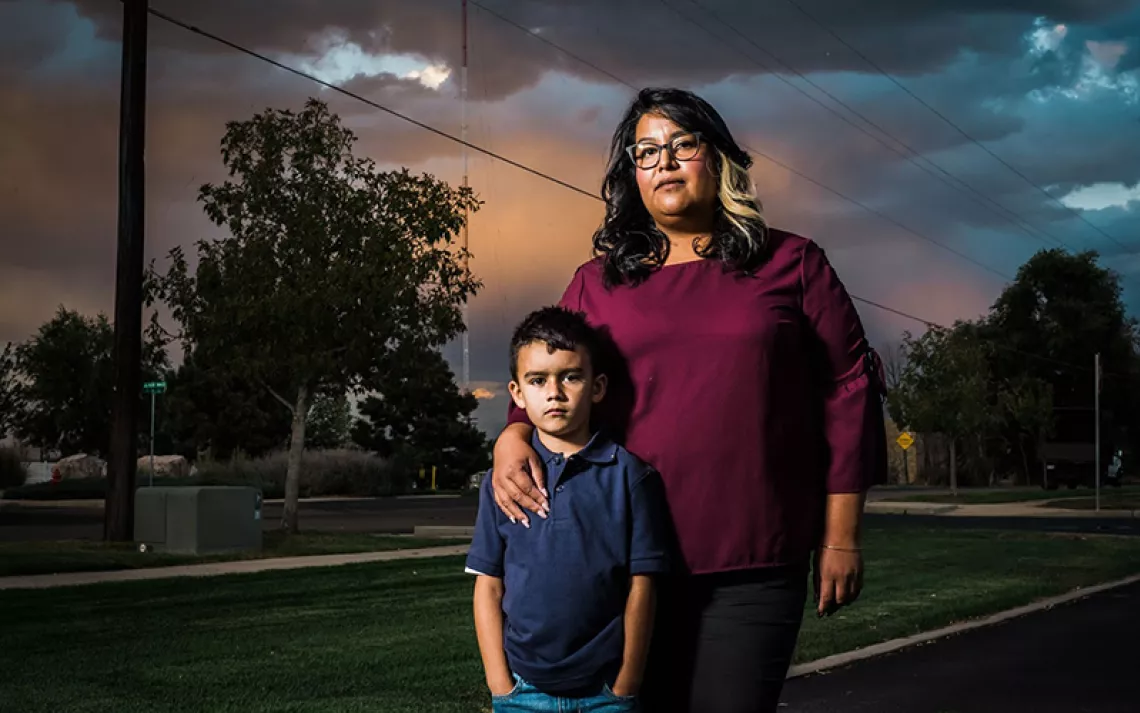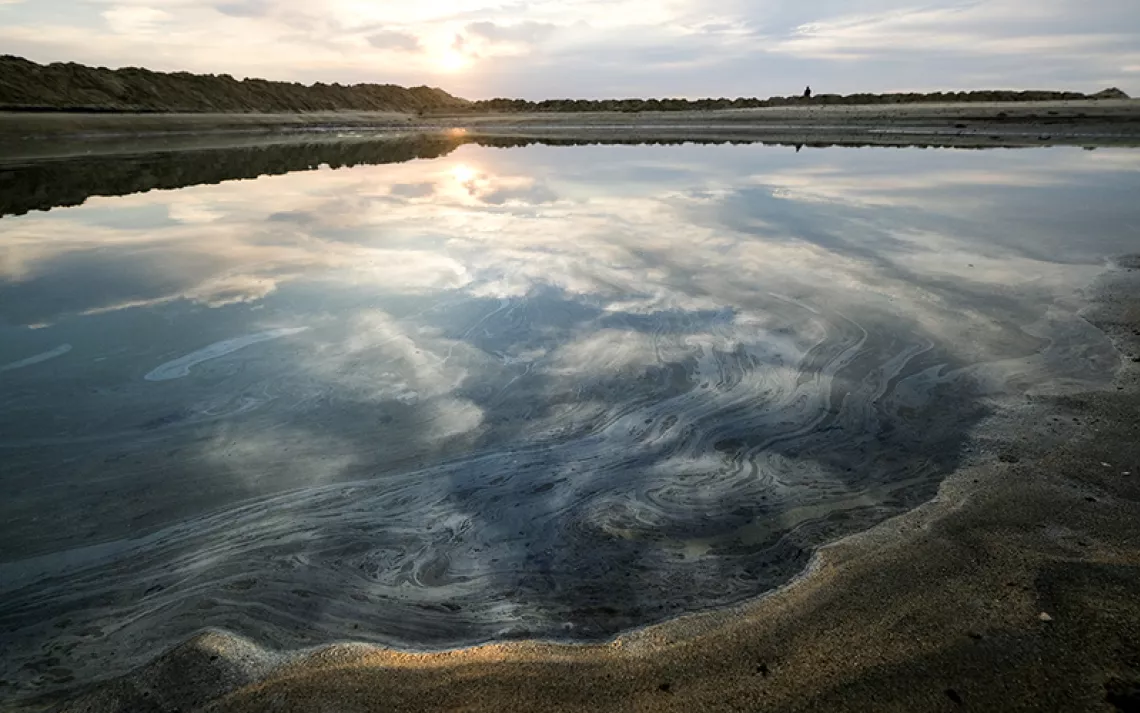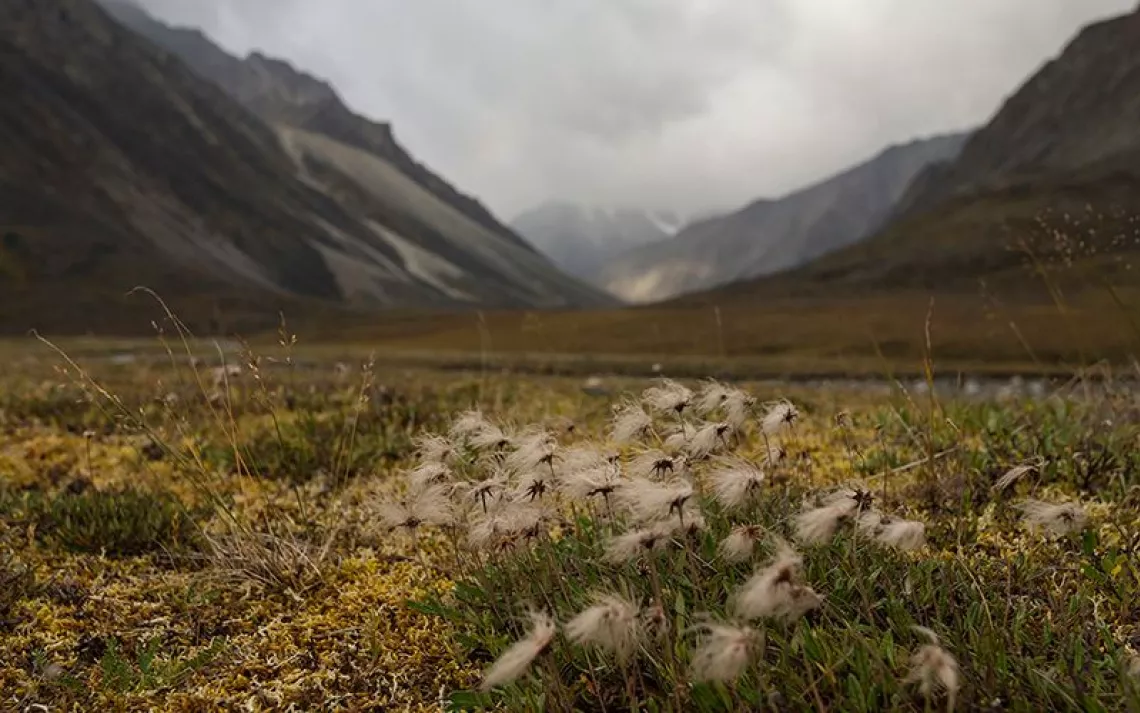Environmentalists and Indigenous Groups Blast Approval of Willow Oil Project
President Biden burns his base as he puts profits over people
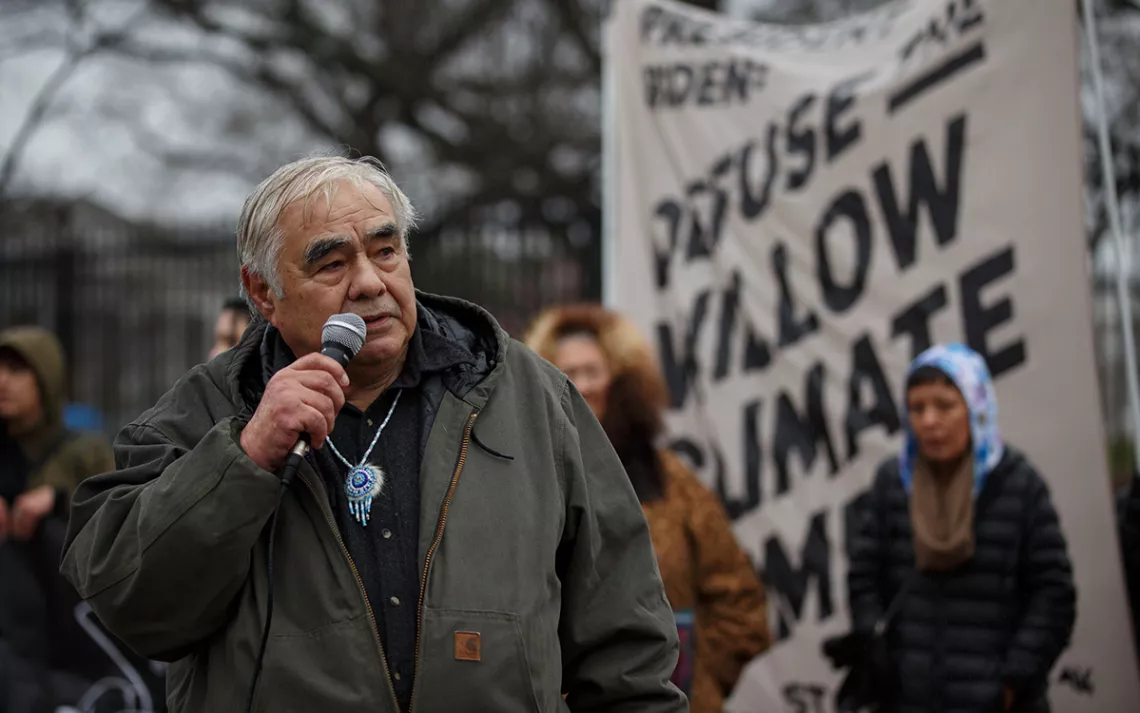
Inupiat wildlife guide Robert Thompson speaks at a protest near the White House in DC on March 3, demanding that President Biden stop the Willow Master Development Plan, an oil drilling project planned to begin in Alaska. | Photo by Bryan OlinDozier/NurPhoto via AP
Indigenous people and environmental groups on Monday swiftly slammed the Biden administration's approval of the controversial Willow oil drilling project along Alaska's North Slope. They say the ConocoPhillips plan—which would be the largest oil development on federal land in US history—conflicts with the president's promise that no new oil and gas drilling would happen on public lands under his leadership and that the move keeps the country tethered to toxic fossil fuels at a time when scientists say the nation needs to be moving away from carbon pollution. The new project is expected to release over 270 million tons of carbon dioxide over its three-decade lifespan and will add nearly 500 acres of gravel fill and hundreds of miles of roads and pipelines to one of the country's wildest areas.
While the Willow project has been approved, the fight to stop it continues. On Tuesday afternoon, a coalition of six environmental groups, including the Sierra Club, The Wilderness Society, and Trustees for Alaska, filed a lawsuit against the Biden administration, charging that the approval violates an array of federal laws.
“Biden approved [Willow] knowing full well that it'll cause massive and irreversible destruction, which is just appalling, particularly coming from an administration who has pledged to address the climate crisis, has pledged to address environmental injustice, has pledged to address the extinction crisis,” said Kristen Monsell, a senior attorney at the Center for Biological Diversity. “The administration has no excuse for letting this project go forward in any form, and new Arctic drilling makes no sense. Even one new oil well in the Arctic is one well too many.”
Environmental groups including Earthjustice and the Sierra Club have spent years trying to prevent Willow from happening. In 2020, the Trump administration rushed the approval of the ConocoPhillips proposal, but a 2021 court decision sent the proposal back to the Bureau of Land Management due to the environmental impacts. In its ruling, a federal judge found that the BLM failed to consider both the greenhouse gases that would be released and the impact it would have on endangered polar bears. Shortly after taking office, President Biden paused oil and gas drilling on all federal public lands, providing a small ray of hope to environmentalists who thought the president might reject the project altogether.
The new plan does little to address the issues critics raised about the first one, including the concern that the project would exacerbate climate change, endanger species like polar bears and caribou, and put local communities at risk of oil spills and gas releases. The new plan's one major concession was to reduce its planned five oil pads down to three. In addition to emissions, the project will add nearly 200 wells and numerous ancillary roads, pads, and ramps to access oil in the National Petroleum Reserve, one of the largest areas of federal lands. The total emissions over the project's lifetime, according to the Associated Press, would equal 1.7 million passenger cars over the same period.
The Biden administration sought to placate opponents by saying that it intends to protect about 2.8 million acres of the Beaufort Sea from future oil and gas leasing. Additionally, the Interior Department plans to put in place updated rules that will prohibit oil and gas sales on some 13 million of the petroleum reserve’s 23 million acres.
Environmental groups said the trade-off is a raw deal. “The announcement is nothing more than window dressing,” Sierra Club executive Ben Jealous told The New York Times on Monday. “If President Biden were sitting here, I’d tell him don’t spit on us and tell us that it’s raining, Mr. President.”
Oil and gas industry allies like Alaska governor Mike Dunleavy applauded the decision as a move that would create jobs and reduce energy costs. But energy industry experts say this enthusiasm is misplaced. The oil from the Willow project won’t reach markets for several years, at which point the transition away from fossil fuels and toward renewable energy will have only accelerated.
Local Indigenous groups like the Sovereign Iñupiat for a Living Arctic say the Willow approval is a betrayal and that the federal government is putting corporate interests above those of local communities. "We condemn the continued prioritization of profit over climate and people,” said a statement put out by the group on Monday. “While this project may have been approved, the effort to divest from fossil fuels and invest in renewable energy continues.”
For years, the Iñupiat people who reside in the village of Nuiqsut have warned the BLM about the damage that further oil and gas drilling would cause to their town, subsistence way of life, and the local environment. In January, representatives of the town joined conservation organizations in a rally outside the White House to call on President Biden to deny the $8 billion project. The town's mayor, Rosemary Ahtuangaruak, followed up with a letter to the BLM expressing dismay and frustration with a process that she calls inadequate and concerning.
"We're only seeing more and more oil and gas development projects being promoted for profitability over our life health and safety," Ahtuangaruak said last month. "The Willow project should not be approved. The risk for our village is too high, and we are not acceptable costs for approval of this project."
The White House’s approval of Willow has soured its relationship with younger, climate-focused voters who were key to Biden’s 2020 victory. Young climate activists tried to drum up support for the cancellation of Willow using a widespread campaign on social media with the hashtag #StopWillow. According to some reports, the effort has generated millions of impressions on TikTok. “President Biden's decision to move forward with the Willow project abandons the millions of young people who overwhelmingly came together to demand he stop the project and protect our futures,” Varshini Prakash, executive director of the Sunrise Movement, said in a statement.
Some members of Congress also joined the chorus of criticism against the project. “The Willow project is a handout to Big Oil that will undermine the administration’s own climate goals,” Representative Ro Khanna, a Democrat from California, tweeted on Tuesday.
In a statement, Democrats Senator Ed Markey along with Representatives Raúl Grijalva, Jared Huffman, and Alexandria Ocasio-Cortez slammed the move as shortsighted. “This administration clearly knows what the path to a cleaner and more just future looks like—we wish they hadn’t chosen to stray so far from that path with today’s Willow decision. The only acceptable Willow project is no Willow project.”
 The Magazine of The Sierra Club
The Magazine of The Sierra Club
